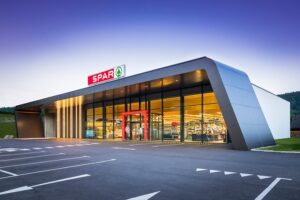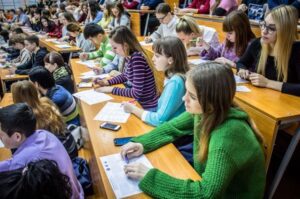
Currently, 39% of Ukrainian medical institutions are experiencing a shortage of specialists, with a particularly acute shortage in the de-occupied territories.
This conclusion was made by experts of the National Agency humanitarian aid ZDOROVI following the results of the next wave of the quarterly Barometer survey of the state of medicine in Ukraine.
“The shortage of personnel is especially noticeable in the de-occupied territories, as there is a low percentage of specialists returning to their jobs,” the agency said in a press release.
At the same time, according to the agency’s press release, the number of staff in about 47% of medical institutions has not changed compared to the pre-war period.
The researchers note that 76% of medical institutions operate under partial resource shortages, and 11% consider the level of shortage to be critical.
At the same time, more than 60% of respondents noted a significant impact of the work of humanitarian organizations on the level of provision of medical facilities.
At the same time, according to the survey, 69% of respondents rated the level of medical staff training to work in a difficult security situation as average, 20% of respondents called their level low, 45% of respondents identified a critical need for personal protective equipment and special equipment to work in a disaster.
“When specifying the material needs for personal protective equipment and special equipment, respondents most often mentioned individual chemical protective packages, gas masks, chemical protection suits, special vehicles, oxygen stations, generators, gabions, body armor, helmets, and equipment for bomb shelters. 73% of respondents are interested in receiving training in disaster medicine,” the press release says.
The new wave of the Barometer survey involved 180 representatives of medical institutions and health departments from different regions of Ukraine, including the frontline and de-occupied territories.
Zdorovi cooperates with international partners, including ICAP Ednannia, RAZOM for UKRAINE, NOVA Ukraine, Americares, the Netherlands Refugee Council and other charitable foundations and organizations.

SPAR International and SPAR organizations in Europe are helping to solve the issue of employment for Ukrainians who had to move to European countries due to the war, according to a company release.
The company is currently accepting applications (temporary and long-term) from displaced Ukrainian citizens in the 17 EU countries where SPAR operates.
The applications consolidate information about the places of residence of internally displaced persons, the level of language proficiency and professional skills. As reported in the release, SPAR pan-European HR directors are united in an international working group to coordinate applications and place retail specialists from Ukraine in their network.
Founded in the Netherlands in 1932, SPAR International Grocery Store operates over 13,000 retail outlets in 52 countries. Since 2017, the network has been developed in Ukraine by the investment group VolWest Group (Lutsk). The network has 68 stores.

Private higher educational institutions will be able to train specialists on state orders, according to the Ministry of Education and Science of Ukraine.
“For the first time, private higher education institutions will be able to train junior bachelors and bachelors on state order. Such institutions will have access to the ‘State Order’ module of the Unified State Base for Education if they submit an application to the Ministry of Education and Science by May 24, 2021,” the press service of the department said.
The report says that in case of opening access to the Unified State Base for Education and obtaining places of state order, the educational institution will have to comply with the legislation on indicative costs at all levels, specialties and forms of obtaining higher education.